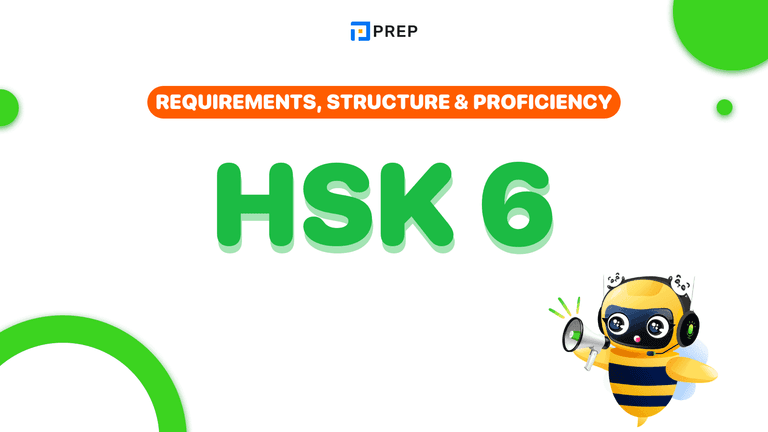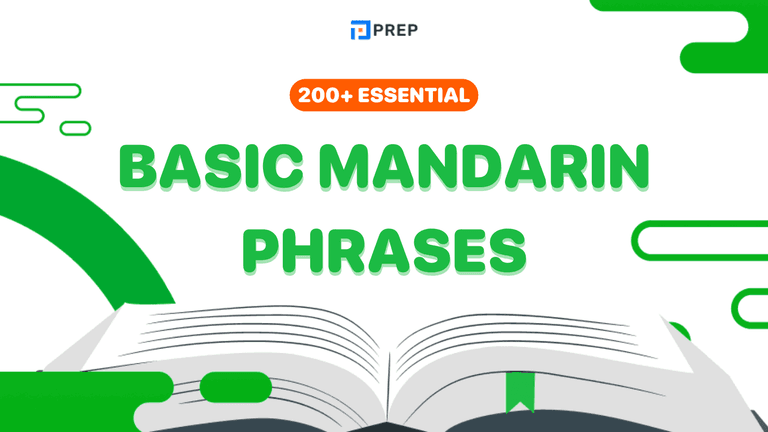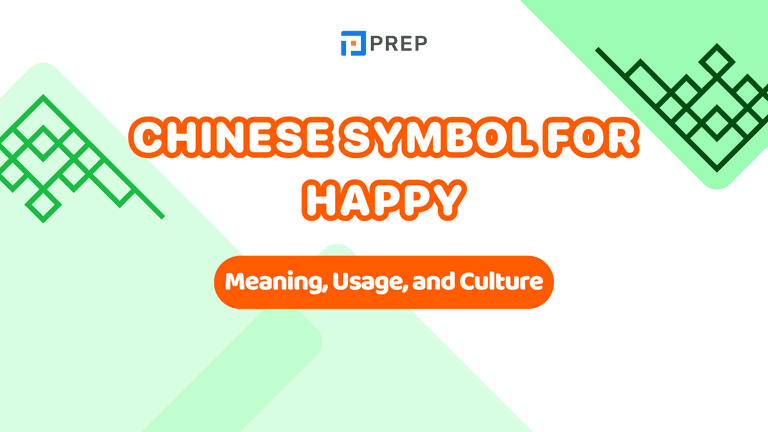IELTS Speaking Part 1 Transport
Transport is a topic that appears quite frequently in the actual IELTS Speaking test. In the article below, PREP would like to share with you a list of questions, sample answers, and useful vocabulary related to IELTS Speaking Part 1 Transport!
*This sample was prepared by Mr. Nhat Pham, an IELTS 8.5 Overall achiever (9.0 Listening, 9.0 Reading, 8.0 Writing, 7.5 Speaking) and Marker Leader at PREP.
- I. Sample questions IELTS Speaking Part 1 Transport
- II. Sample IELTS Speaking Part 1 Transport
- 1. How do you go to work/school?
- 2. What’s the most popular means of transportation in your hometown?
- 3. How far is it from your home to work/school?
- 4. Do you think people will drive more in the future?
- 5. What form of transport do you prefer to use? Why?
- 6. How often do you take buses?
- 7. Can you compare the advantages of planes and trains?
- 8. How much time do you spend traveling on a normal day?
- 9. Would you ride bikes to work in the future?
- 10. Do you prefer public transport or private transport?
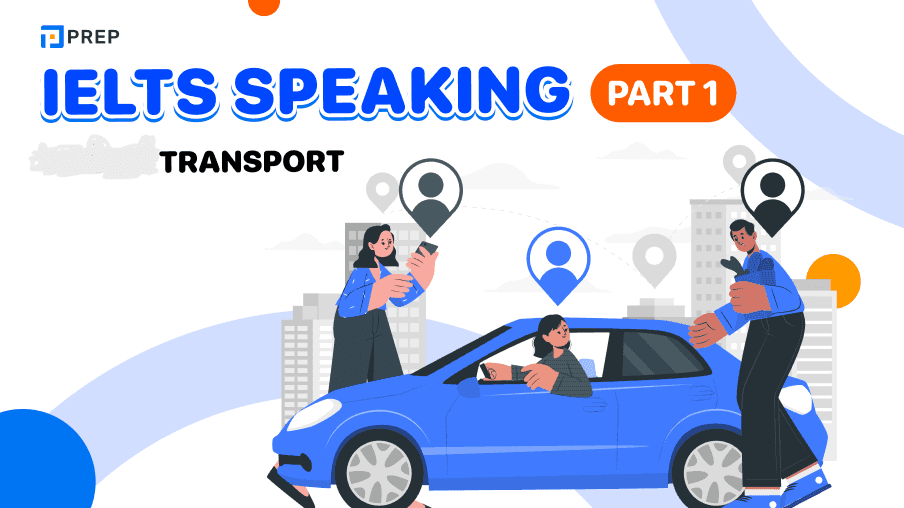
I. Sample questions IELTS Speaking Part 1 Transport
PREP has collected and compiled some questions related to IELTS Speaking Part 1 Transport from actual IELTS tests below. Be sure to check them out!
-
How do you go to work/school?
-
What’s the most popular means of transportation in your hometown?
-
How far is it from your home to work/school?
-
Do you think people will drive more in the future?
-
What form of transport do you prefer to use? Why?
-
How often do you take buses?
-
Can you compare the advantages of planes and trains?
-
How much time do you spend traveling on a normal day?
-
Would you ride bikes to work in the future?
-
Do you prefer public transport or private transport?
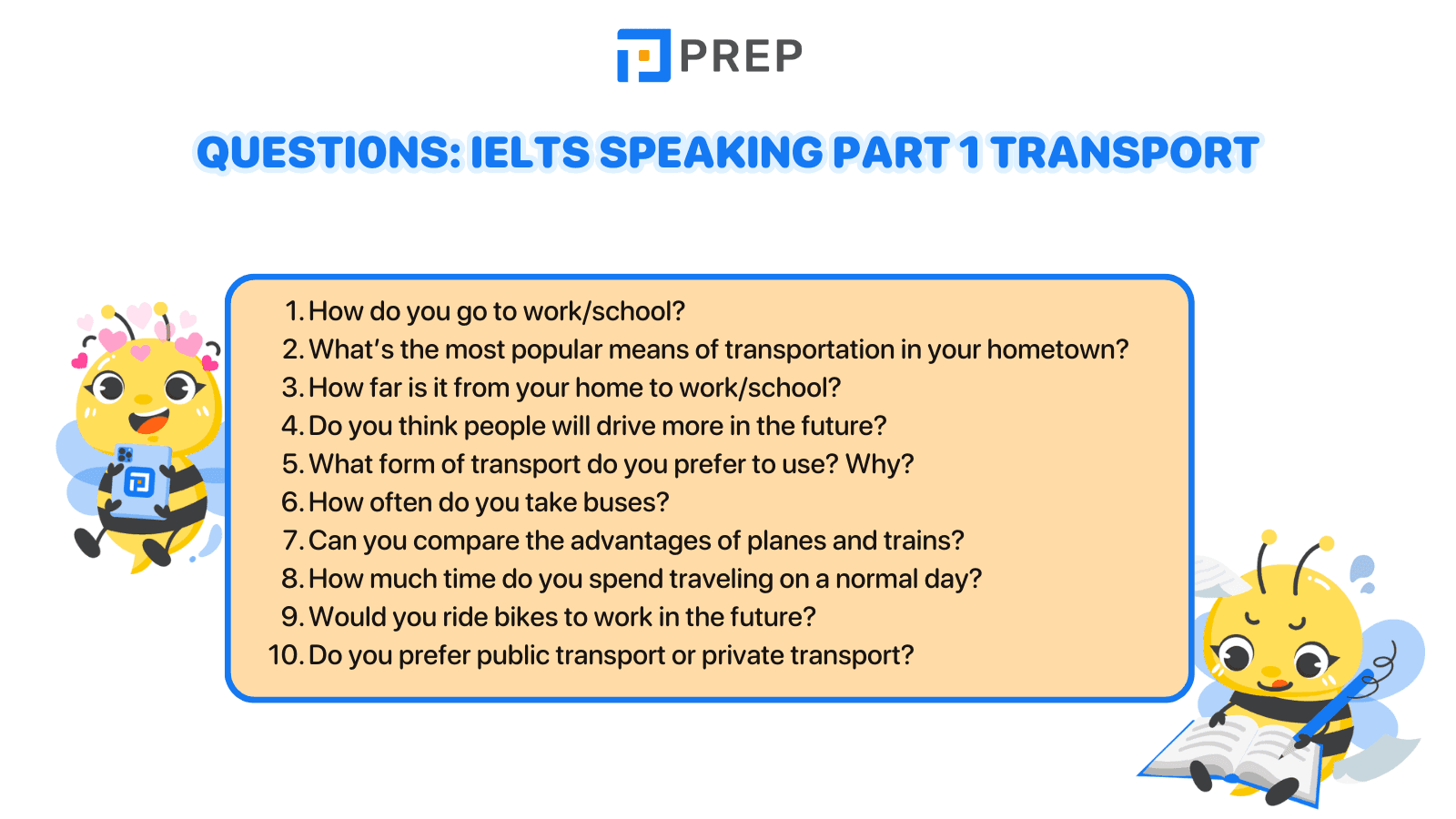
II. Sample IELTS Speaking Part 1 Transport
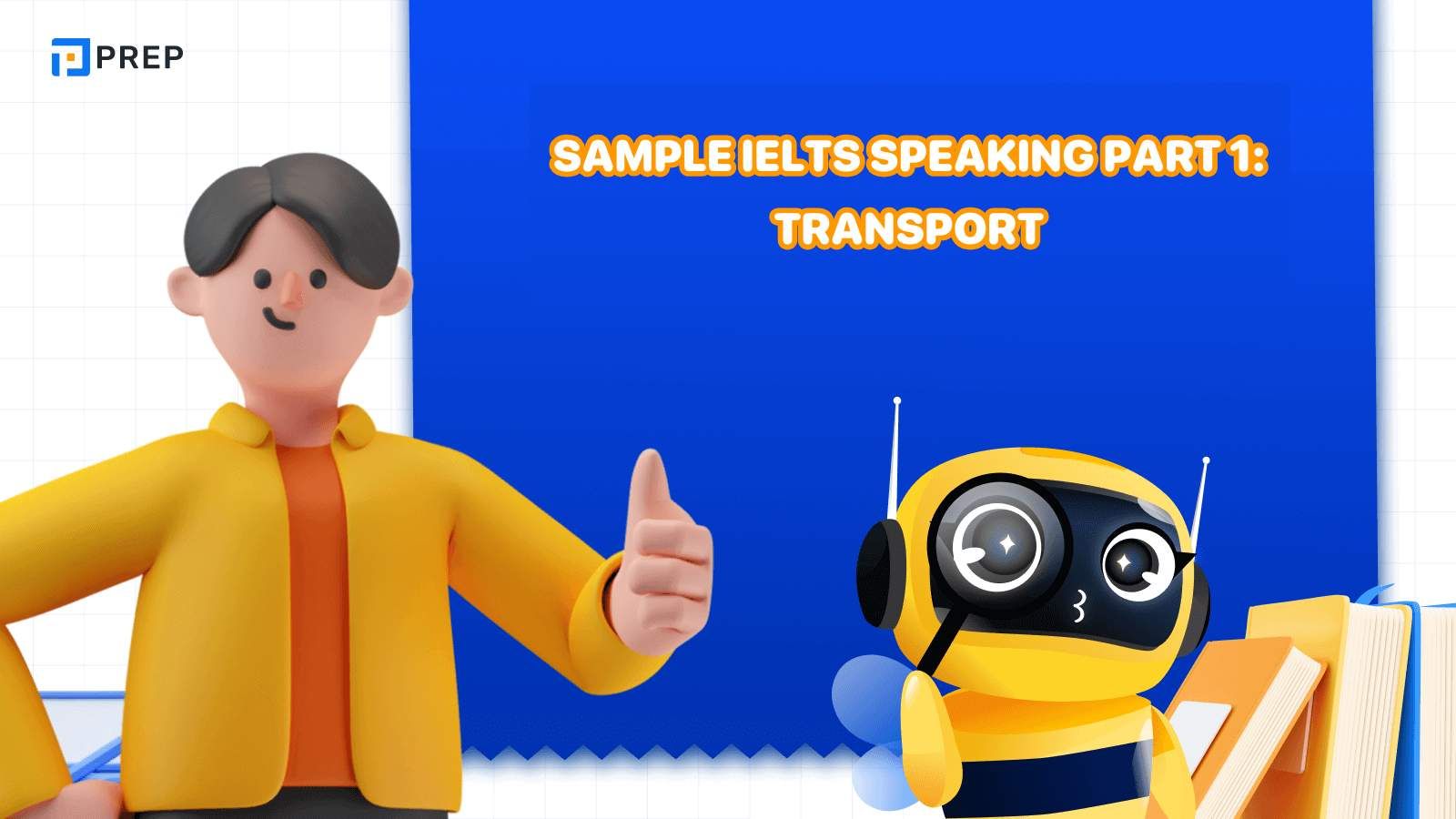
Let’s quickly explore the sample IELTS Speaking Part 1 Transport with PREP!
1. How do you go to work/school?
I typically commute to work by taking the bus or skytrain. It's efficient and convenient, allowing me to avoid traffic and save time. I find it a great opportunity to catch up on reading or listen to podcasts during the journey. One of the most common traveling methods in my town is riding a scooter or a bicycle, and well, I am no exception. It's a practical option for short to medium-distance commutes, allowing riders to reach their destinations quickly and easily, and certainly allowing me to go everywhere at my convenience.
High-scoring vocabulary for sample answers in Transport IELTS Speaking Part 1:
-
Commute (v): To travel regularly between one’s home and place of work.
-
Exception (n): A person or thing that is excluded from a general statement or rule; a case where a general rule does not apply.
-
Convenience (n): The quality of being convenient; something that saves time or simplifies activities.
2. What’s the most popular means of transportation in your hometown?
In my hometown, scooters and motorbikes are the most popular means of transportation, as it is a practical way to navigate the city's narrow streets. Hopping on a motorbike, squeezing yourself in the chaos of the bustling, traffic-clogged streets can give you a chance to glimpse the real character of the city, way more revealing than any museum or guided tours.
High-scoring vocabulary for sample answers in IELTS Speaking Part 1 Transport:
-
Means of transportation (n): Modes of transport; methods for moving from one place to another.
-
Navigate (v): To direct or control a journey to reach a desired destination; to maneuver or operate in order to move back and forth.
-
Squeezing (n): The act of constricting or pressing tightly; the action of distorting, occupying, or taking up all available space.
3. How far is it from your home to work/school?
My workplace is about a 30-minute motorbike ride from home. It's a manageable distance that allows me to strike a good balance between work and personal life.
High-scoring vocabulary for sample answers in Transport Speaking Part 1:
-
Manageable (adj): Capable of being managed or controlled; easy to handle; not overly complex.
-
Balance (n): The state of equilibrium between different elements; a stable condition; harmony.
4. Do you think people will drive more in the future?
I believe that in the future, people will increasingly turn to more sustainable and eco-friendly modes of transportation like electric vehicles, public transit, and cycling. With growing environmental concerns, the shift towards such options seems inevitable.
High-scoring vocabulary for sample answers in IELTS Speaking Part 1 Transport:
-
Sustainable (adj): Capable of being maintained over the long term without harming the environment or depleting resources.
-
Eco-friendly (adj): Environmentally friendly; not harmful to the environment.
-
Inevitable (adj): Unavoidable; certain to happen; something that cannot be escaped.
5. What form of transport do you prefer to use? Why?
I prefer to use motorbikes for my daily commute. Motorbikes are the most common and convenient mode of transport here. They allow me to navigate through traffic easily and are well-suited to the narrow roads in many areas.
High-scoring vocabulary for sample answers in IELTS Speaking Part 1 Transport:
-
Convenient (adj): Useful or suitable for a particular purpose; easy to use.
-
Mode of transport (n): A means or method of transportation.
-
Navigate (v): To plan and direct the course of a journey.
-
Easily (adv): Without difficulty; effortlessly.
-
Well-suited (adj): Appropriately matched or adapted for a particular purpose.
6. How often do you take buses?
I don't take buses very often. While buses are available, they can be less efficient and comfortable compared to motorbikes or taxis. I mainly rely on motorbikes for my daily transportation needs.
High-scoring vocabulary for sample answers in IELTS Speaking Part 1 Transport:
-
Efficient (adj): Performing or functioning in the best possible manner with minimal waste of time and effort.
-
Comfortable (adj): Providing physical ease and relaxation; free from discomfort.
-
Compared to (v): To evaluate or assess the similarities and differences between two or more items.
-
Rely on / Depend on / Trust in (v): To place confidence in someone or something; to depend for support or assistance.
-
Transportation needs (n): The requirements or demands related to moving people or goods from one place to another.
7. Can you compare the advantages of planes and trains?
Planes are often the preferred choice for long-distance travel, especially when you need to cover a significant distance quickly. Trains, on the other hand, are more commonly used for medium-distance travel within the country. They can offer a comfortable and scenic journey, but they are usually slower compared to planes.
High-scoring vocabulary for sample answers in Transportation Part 1 IELTS Speaking:
-
Significant (adj): Important or meaningful; having a major impact or influence.
-
Distance (n): The amount of space between two points; a measurement of separation.
-
On the other hand / Conversely / In contrast: Used to introduce a different perspective or an opposing idea.
-
Medium-distance (n): A range that is neither short nor long; typically refers to distances that are moderate in length.
-
Scenic (adj): Having beautiful or picturesque views; visually attractive.
8. How much time do you spend traveling on a normal day?
On a normal day, I spend approximately 30 minutes to an hour traveling to and from work or school. However, travel times can vary significantly depending on traffic conditions.
High-scoring vocabulary for sample answers in IELTS Speaking Part 1 Transport:
-
Approximately (adv): About; nearly; close to a particular amount or value.
-
Traffic conditions (n): The state of traffic flow on roads, including factors like congestion, speed, and road conditions.
9. Would you ride bikes to work in the future?
Yes, I would consider riding a bicycle to work in the future if the infrastructure and safety conditions improve. Biking can be a sustainable and healthy option, especially for short commutes.
High-scoring vocabulary for sample answers in IELTS Speaking Part 1 Transport:
-
Infrastructure (n): The basic physical systems and structures necessary for the operation of a society, such as transportation, communication, and utilities.
-
Safety (n): The state of being free from danger, risk, or injury.
-
Conditions (n): The circumstances or factors affecting the way in which people live or work.
-
Sustainable (adj): Capable of being maintained over the long term without depleting resources or causing environmental harm.
10. Do you prefer public transport or private transport?
For me, I prefer private transport, mainly due to the convenience and flexibility it offers. While public transport exists, it may not always be as efficient or comfortable as private options, especially in crowded urban areas.
High-scoring vocabulary for sample answers in IELTS Speaking Part 1 Transport:
-
Convenience (n): The quality of being easy to use or access; usefulness.
-
Flexibility (n): The ability to adapt or change; versatility.
-
Efficient (adj): Performing or functioning in the best possible manner with minimal waste of time and effort.
-
Private options (n): Personal or private choices available to individuals.
-
Crowded (adj): Filled with too many people or things; densely packed.
-
Urban areas (n): Regions characterized by high population density and vast human-built features, typically cities and towns.
In this article, PREP has provided you with comprehensive sample answers for IELTS Speaking Part 1 Transport. Let’s follow PREP regularly for more quality English language knowledge!
In PREP's IELTS Speaking course, you'll receive comprehensive pronunciation training, supported by advanced AI technology that evaluates your pronunciation exercises and provides detailed corrections. The highlight is access to the premium Prep AI Virtual Speaking Room, where you can build confidence and reflexes for real test scenarios while receiving swift, detailed feedback with 95% accuracy compared to actual exams.
Download the PREP app to study IELTS effectively at home with a high-quality online learning program designed to help you achieve outstanding scores.

Hi I'm Chloe, and I am currently serving as an Product Content Administrator at Prep Education. With over five years of experience in independent online IELTS study and exam preparation, I am confident in my ability to support learners in achieving their highest possible scores.
Comment
Premium content
View allPersonalized roadmap
Most read









